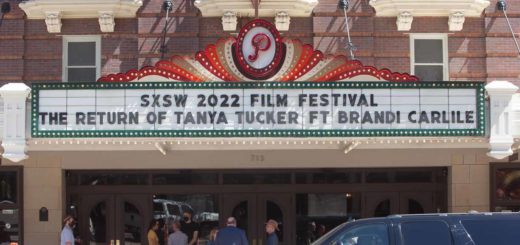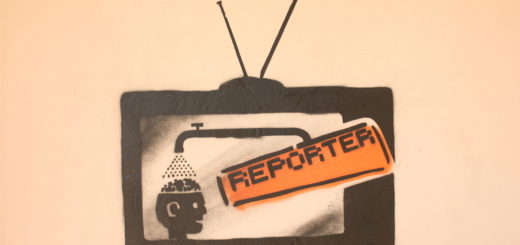Reruns: LT. FRANK COLUMBO
This is part of the reruns series of guest posts by guest writer Jason Sparks
LT. FRANK COLUMBO
Peter Falk, “Columbo”, NBC, 1971-78; ABC, intermittently, 1990s-2000s
It was an April day in 1906 when the RMS FREEDONIA docked at New York City, and among the teeming masses in the steerage, there was a young, ambitious man—well, one of several hundred such men—who signed in at Ellis Island as Salvatore Giacchino Columbo, late of a small fishing village on the coast of Sicily.
It was on his very first day in the city—at least, he told his family that this was the case—that he recognized a familiar face, who had arrived a few years earlier from the same village—and Salvatore talked himself into a job with the man, now a distributor of olive oil. One day, the olive-oil distributor approached Salvatore about a favor he needed: if anyone asked, especially anyone outside the neighborhood, would Salvatore be willing to say that he and his boss had been having supper together on the night of the St Anthony procession? Sal agreed, and the soft-spoken olive-oil kingpin rewarded him with $500, which (a) in 1906 (b) for sampling telling someone something, and that only if anyone asked, was a fortune.
When Salvatore was finally asked about it, the person asking was indeed from outside the neighborhood: a police detective. Between that, and seeing the alarming (and casually racist) news story in the New York Enquirer about a death that had taken place not far from where he now stood, Salvatore put together what he supposed he had known all along. That afternoon, he went to his boss and explained that he would be leaving town, as he had family already established out West. Few men would ever successfully lie to that man, but on that day, Salvatore Columbo did, and booked passage on a train to California.
The $500 mostly went towards purchasing land—rich, loamy acreage in the Inland Empire, where he grew tomatoes. By 1920, Columbo Tomatoes were on sale in 35% of the grocery stores in Los Angeles; by 1930, he was able to sell the farm to General Foods and retire on the tidy sum. Why sell? Why not pass the farm on to the next generation? Because, Salvatore reckoned, this was America, and one makes one’s own destiny. You do what you choose to do, and, sure enough, his sons had not chosen to farm; Carlo owned a restaurant, Michael sold Packard cars, and Phillip was a projectionist at the Loew’s Gower Boulevard. Phillip’s may have been the closest occupation to working class, perceived as far from striving, but this was no matter, for Phillip gave Salvatore his first grandson, Francis, in 1928.
Francis Columbo was the talk of the family from an early age. The Los Angeles Unified School District first noticed that the boy was bright—IQ tests indicated somewhere north of 150, especially when the tests involved complex puzzles to be teased out—and there was great hope for him, even if he was a bit of an oddball. Never much concerned with how he dressed, blasé about sports, good at debate, but difficult to hear.
Francis was raised speaking far more English than Italian, but he quickly grasped that his father, uncles, and others were not praising the boy when he heard (as he often did) the word oobatz’. Which word, often, was followed by a slap, administered by Salvatore to whoever said the word. “Francis, he will find his way,” the doting grandfather would say; “really, the boy, he find his way, only you no see it!” The unseen it referred to the one thing that really seemed to make Francis come alive: mysteries. Boston Blackie and Sherlock Holmes on the radio, Black Mask magazines in his room, letter after letter from the library about mystery novels checked out and not returned. The unseen it was the ritual between Francis and Salvatore, every time they listened to Ellery Queen together; Sal would question Francis about who the killer was, and Francis would almost never fail to answer before the big reveal.
Francis—Frank by now, after the first of many teen idols this country would produce—graduated from Lincoln High School in 1946, and his future was laid out before him, as far as he knew: accepted to the LAPD Academy, and steadily seeing a beautiful girl. His family, as usual, with the exception of his grandfather, couldn’t decide what to worry about more: that Francis was throwing away all those smarts on being a cop, or that his girlfriend wasn’t Italian. She was a struggling actress (like every woman out there, it seemed) named Elizabeth Short; a few years older than Frank, she led the lad around by the nose—and by other appendages, after she took his virginity during a moonlit night on Venice Beach. He planned to marry her.
He would not, of course, because the very next year, Elizabeth Short would become part of LA’s infamous history and folklore, and her name would change: she would be remembered as The Black Dahlia, murdered and brutally dissected by a killer unknown to this day. Other members of the LAPD responded to the crime scene. Cadet Columbo nearly did; he was shadowing two guys from Robbery/Homicide, Friday and Gannon, and Friday, who missed nothing, heard the girl’s name over the radio (Frank was on a coffee run, thank God) and asked that his team be recused. Frank walked back in with coffee and bear claws, and heard Friday say, “Siddown, son.” It was his last cogent memory of that night.
No one has ever really known what happened next, what the thoughts in Frank’s mind were that led him in the direction he went; maybe he felt trapped by his own hometown, suffocated by reminders, daunted. His family knew by now what a waste of time it would be to try to talk him out of…anything, really, and so there were no questions when he dropped out of the police academy and joined the Army. He was an MP, given the talents and training he already had; if his goal was to escape LA, he achieved that goal, as one of the first men sent to Korea. Assigned to a base at Yung Dung Po, Frank was tough but fair, well-liked despite his position; it wasn’t long before he and a motor pool mechanic named Dick Whitman were thick as thieves. There were nightly card games, long talks about life back home, rip-snorter furloughs in Tokyo; Armed Forces Radio began to run Ellery Queen, and Frank solved the cases, to Dick’s endless surprise. Dick seemed ambivalent about the radio, because AFR didn’t run commercials—which Frank found utterly bizarre, but whatever. In 1950, Dick Whitman was reassigned to a remote outpost, which hurt Frank deeply, until the day after Dick left, which was when Chinese mortar fire landed directly on what had been Whitman’s cot the night before, and drove a metal splinter into Frank’s right eye.
Thankfully, Frank could not remember the moment he got hit; all he knew was, he saw what he thought was a bolt of lightning hit Whitman’s bunk, and then, as if not time at all had passed, he was in a bed at a Mobile Army Surgical Hospital—and there was something over half of his face, and he couldn’t remove it. He’d also received some trauma to the brain—not that the technology existed to detect that at the time—and so his memories of the hospital were few: apparently, a few beds down, there was a Lt. Draper, whose jaw must have been wired shut (Frank never saw his face) because he couldn’t talk, gesturing instead with his hands…his right hand…and the other thing he remembered was the skinny, dark-haired doctor finally telling him, “You’re going home, pal; the way the Army sees it, you can’t see, see? They value accurate shooting—no, seriously—and that requires what’s called depth perception. You know how they say it takes two to tango? It also takes two to perceive depth, and you’re down by 50%, but you’re up one—one ticket home.” Frank half-heard him. The other half of his mind was focused on that Lt. Draper’s hand…what the hell was it about that hand?
It was aboard a DC-3 crossing the Pacific, while the other GIs were asleep, that Frank woke up half the plane by yelling, “CIGARETTE BURN!” and then slapping his forehead. Lt. Draper’s hand had a cigarette burn on it, just below where the thumb connects to the hand—just like the burn that has been caused, intentionally, by a pious, judgmental father back in Pennsylvania who had caught his kid with a pack of Lucky Strikes! A kid named Dick Whitman! Who had been transferred! To a Lt. Draper’s unit! He had it all sorted out—and he was absolutely right—but…what now?
He decided, then and there, that he was going to allow himself one moment of weakness. Why not let Dick go home? Why not spare him the risk of getting killed? If anyone ever knew that Frank, an MP, had let another man get away with desertion, he’d rot in Leavenworth. But he’d been in a hospital, half out of his mind on morphine, and newly missing an eye. Incredulously, and to no one in particular, he said, “I’m gonna get away wid’ dis!” So he did—as did Pvt. Whitman—but Frank Columbo would never let it happen again. He went back to Los Angeles, finished at the Academy, joined the LAPD in 1955, finally married in ’56, to a woman he loved deeply and truly, and made Lieutenant in the Homicide Division by ’62—the year, as it happened, that Salvatore Columbo died, but not before calling his beloved grandson to his home one last time.
“Francis”, he said, “long time ago, this was brought-a my house, and I…never told you, because I felt your heart could not…was-a supposed to be Christmas gift from…you first little girlfriend. I think you ready now. And you need.” He handed his grandson a long, white box from May Company. In it was a gift Elizabeth Short had bought her forgetful, always-caught-in-the-rain boyfriend: a trenchcoat.
The source of that trenchcoat was the one thing Frank never shared with Mrs. Columbo, the coat that he would proceed to wear for his entire career, a career built on bringing self-important murderers to justice. The famous magician. The mystery writer. The French chef with his own TV show. The country singer Tommy Brown. Only once did he fail to bring a killer to justice—the actress Grace Wheeler, as it happens—and that was because he knew she was dying.
They all thought they’d get away with it; they all thought at first that this rumpled little man in the trenchcoat, with his cigars and his ratty old Peugeot and his sad-eyed dog, would never see through them. No. Salvatore’s dream of a self-made man was manifest in Lt. Columbo, a man unconcerned with appearance, a man active in his mind, a man who, between Elizabeth and Dick, had all he’d ever want of letting someone get away. He worked past the usual mandatory retirement—they were afraid to let him go—and in January of 2003, his 58th year with the LAPD, he solved one last murder, a sordid business at a dance club; the perp safely whisked away to jail, the Lieutenant drove back to the station to do his paperwork, and had a stroke at his desk. He was buried in the trenchcoat, of course.






















